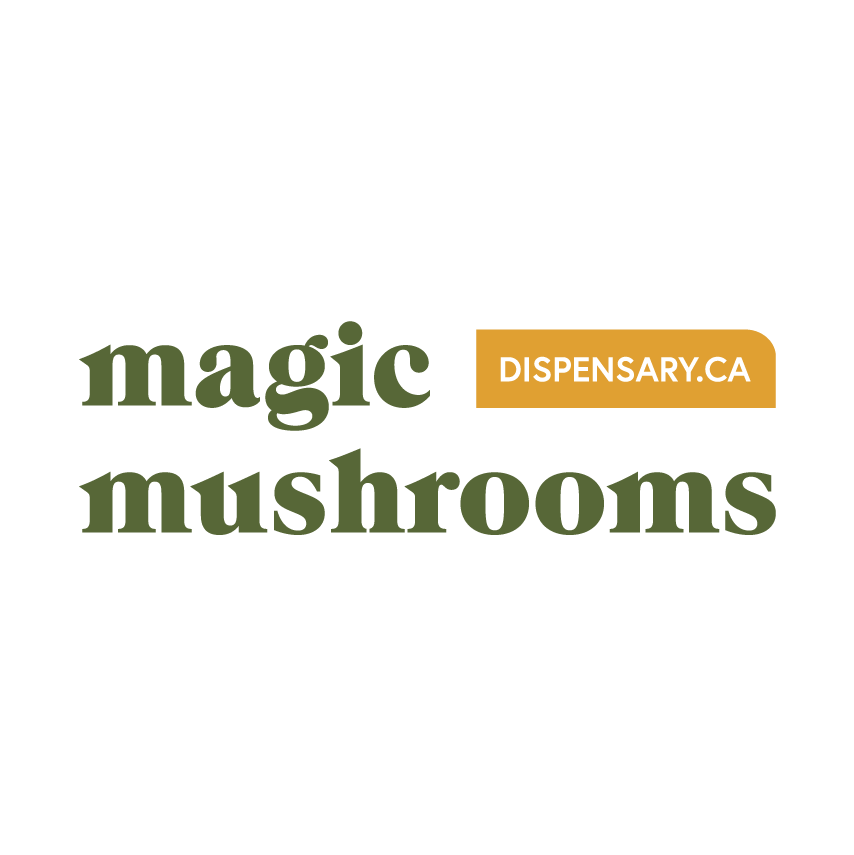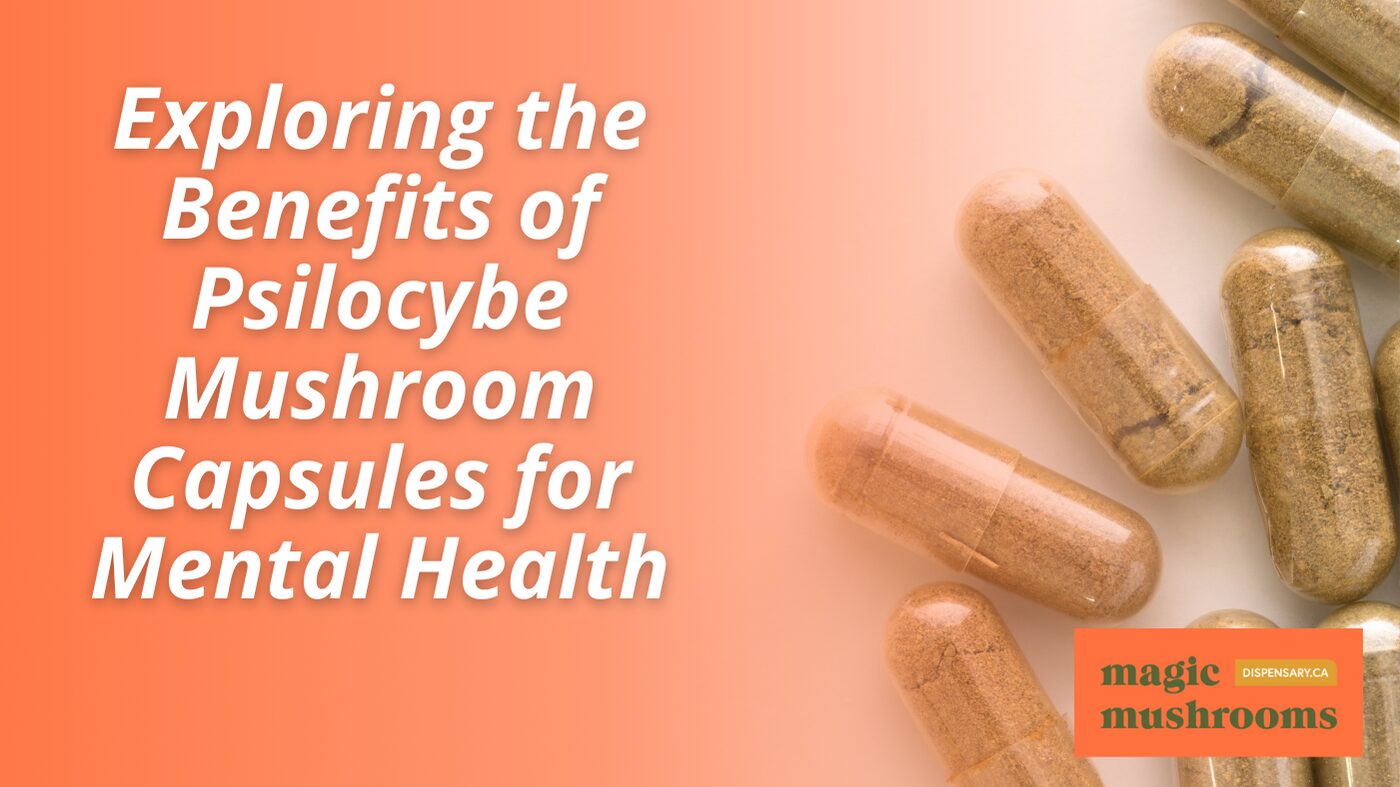Research on Psilocybe mushroom capsules, which contain psilocybin, the active ingredient, is uncovering its potential mental health benefits. This compound’s ability to enhance mood and stimulate neuroplasticity is proving to be effective in managing conditions such as depression, anxiety, PTSD, and various addictions. Consuming Psilocybe capsules in a safe, controlled manner, particularly under therapeutic guidance, promotes recovery in mental health and supports the restructuring of the brain. Delving into this topic reveals additional knowledge regarding its historical usage, scientifically supported advantages, methods of production, and more, thereby broadening one’s grasp of this novel mental health aid.
Key Takeaways
- Psilocybe mushroom capsules contain psilocybin, positively impacting mood and promoting neuroplasticity.
- Clinical trials show potential in treating depression, anxiety, PTSD, and addiction with Psilocybe mushroom capsules.
- Psilocybin enhances neuroplasticity, which is crucial for mental health recovery and restructuring neural connections.
- Microdosing psilocybe capsules involves regular sub-perceptual doses for potential mood, creativity, and focus improvements.
- Psilocybe capsules may alleviate symptoms of PTSD and obsessive disorders, promoting neural plasticity.
Traditional Uses of Psilocybe Mushroom Capsules
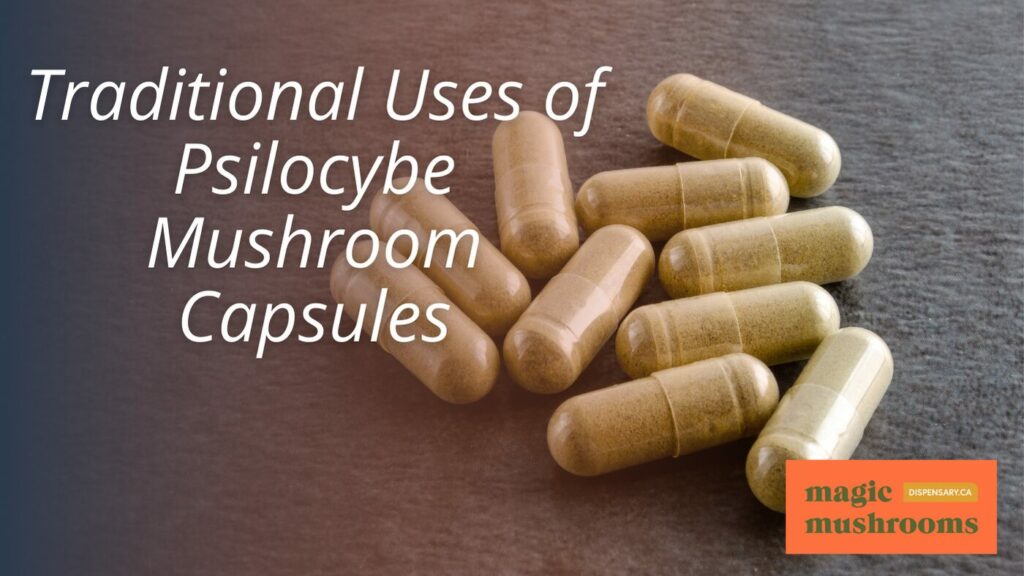
Delving into the traditional uses of Psilocybe mushroom capsules uncovers a rich history of over 3,000 years. Indigenous cultures harnessed their potential for healing and spiritual rituals. These cultures, primarily found in Mesoamerica and South America, recognized the inherent value of the psilocybin capsule and incorporated it into their ceremonies.
Psilocybe mushroom capsules, also known as shroom capsules, were not merely consumed for their psychedelic effects. Instead, they were respected for their ability to catalyze profound spiritual experiences, offer healing, and provide insight. The use of mushrooms in capsules was a meticulous process, an art that required a deep understanding of their psychoactive properties.
Evidence of this ancient practice is found in rock paintings in Western Australia, suggesting the use of these magic mushroom capsules over 10,000 years ago. These capsules’ historical significance and traditional use have catalyzed modern research into their potential therapeutic applications.
A microdose capsule, a modern adaptation of this ancient practice, is gaining popularity in alternative medicine. Microdosing mushroom capsules involves consuming small, sub-hallucinogenic doses to reap the therapeutic benefits without the intense psychedelic experience.
Making mushroom capsules has also become more accessible, promoting their use in natural medicine. Psilocin capsules, similar to psilocybin capsules, are explored for their potential to alleviate symptoms of mental health disorders. Mainly, mushroom capsules for anxiety show promise in offering relief to individuals grappling with this common mental health issue. This traditional practice, once rooted in spiritual and healing rituals, now holds the potential to revolutionize the field of mental health therapy.
Modern Research on Psilocybe Mushrooms
Building upon the traditional uses of Psilocybe mushroom capsules, modern research investigates their potential as a therapeutic tool for various mental health conditions. The active ingredient in these mushrooms, psilocybin, has been found to affect serotonin receptors in the brain, which can positively impact mood and promote neuroplasticity.
Clinical trials and studies are currently being conducted to explore further the efficacy of Psilocybe mushroom capsules in treating depression, anxiety, PTSD, and addiction. The early results from these studies have been promising, showing significant improvements in mood and reductions in the symptoms of these mental health conditions.
Moreover, research is also focusing on the potential of these mushrooms to provide effective treatment options for individuals suffering from treatment-resistant mental health conditions. These are conditions for which traditional treatments have not been effective, leaving patients with few options for relief.
In addition to investigating the therapeutic benefits, research is also working to establish safe dosages and administration methods for Psilocybe mushroom capsules. This is an essential step in ensuring that the use of these natural psychedelic compounds can be safely integrated into mental health treatment plans.
Psilocybe Mushroom Capsules: An Overview
Understanding the nature and advantages of Psilocybe mushroom capsules provides a clearer perspective on their potential therapeutic applications. These capsules are specially formulated to contain controlled, precise doses of psilocybin, the active psychedelic compound found in Psilocybe mushrooms. This standardization guarantees consistent dosing, which is crucial for therapeutic use and efficacy.
The convenience and portability of capsules make them a preferred choice for many seeking the mental health benefits of psilocybin. They are discreet, easily transportable, and simple to consume, making them a practical option for those incorporating psilocybin therapy into their mental health treatment plan.
The controlled-release nature of capsules is a significant advantage when managing the effects of psilocybin. This slow-release method can provide a steady onset of psilocybin’s effects, helping to mitigate any potentially overwhelming experiences that can sometimes occur with rapid onset. This makes it easier for individuals and their healthcare providers to manage and monitor the therapeutic process, ensuring safety and maximizing potential benefits.
Research has suggested that psilocybin when used in a controlled, therapeutic context, can have profound impacts on mental health. Conditions such as depression, PTSD, addiction, and OCD have all been shown to benefit from psilocybin therapy potentially. The precise, controlled dosing available through Psilocybe mushroom capsules could offer a new, practical approach to managing these conditions and improving overall mental health. To sum up, Psilocybe mushroom capsules represent a promising avenue in the field of psychedelic-assisted therapy, offering a practical and effective means to harness the potential benefits of psilocybin for mental health treatment.
How To Make Mushroom Capsules
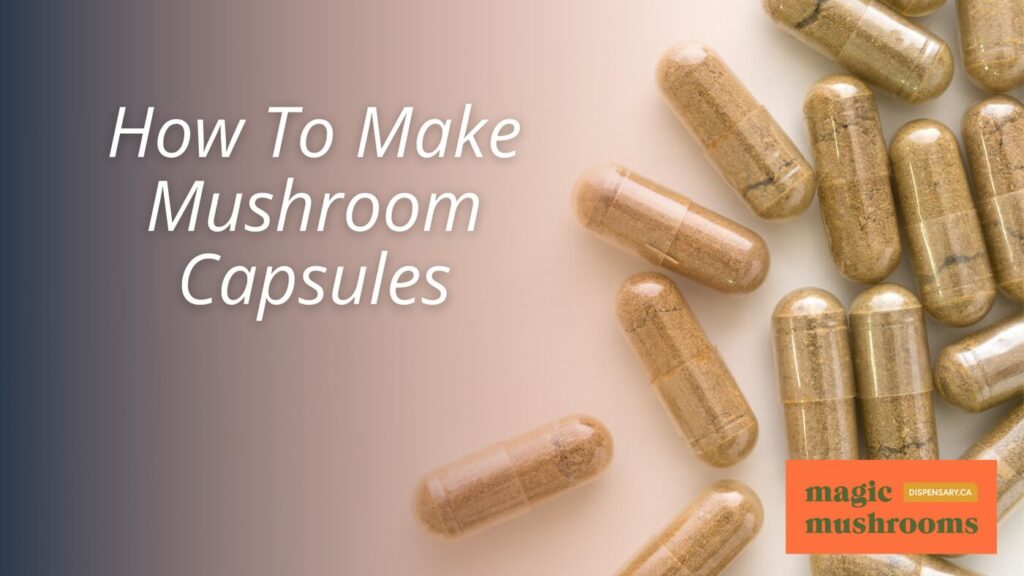
Creating mushroom capsules at home involves a simple process that starts with grinding dried psilocybe mushrooms into a fine powder. This powder is the base of the capsules and contains the active compound psilocybin. Thoroughly drying the mushrooms before grinding is vital, as moisture can compromise the integrity of the capsules and potentially promote bacterial growth.
After grinding the mushrooms to a fine consistency, the next step involves packing the powder into empty capsules. These capsules are available online or in health food stores in various sizes. The size chosen will determine the dosage per capsule, so making an informed decision based on personal tolerance and the desired effect is essential.
The packing process can be tedious and requires patience to fill each capsule. A capsule-filling machine can expedite this process and improve accuracy, making it a valuable tool for those planning to make capsules regularly.
Once filled, the capsules should be stored in a cool, dark, and dry place to maintain potency. Proper labeling is also crucial to ensure accurate dosing, mainly if different strains or dosages are used. It’s also worth noting that while making mushroom capsules is relatively straightforward, sourcing them from a reliable and safe provider is essential.
Psilocybin’s Role in Mental Health
Additionally, delving into the role of psilocybin in mental health, it is worth noting that this active compound in Psilocybe mushroom capsules has demonstrated significant potential in the treatment of conditions such as depression, anxiety, PTSD, and addiction. Beyond these conditions, the scope of its therapeutic application seems to widen, with ongoing studies exploring its use in treating a broad spectrum of psychiatric conditions. This is leading to a reevaluation of psilocybin as a previously overlooked tool in the mental health treatment toolkit.
Research indicates that psilocybin can induce rapid and enduring alleviation of depressive symptoms, with these improvements potentially lasting up to one year. This long-lasting effect, coupled with the fact that using Psilocybe mushroom capsules may necessitate infrequent dosing, suggests that it could be a convenient and potentially effective treatment option for patients.
The role of psilocybin in promoting neuroplasticity also warrants special mention. This psychedelic compound can stimulate the growth and repair of brain cells, which could be a game-changer in mental health treatments. Additionally, under professional guidance, psilocybin-assisted therapy is showing promising results in easing the burden of mental health disorders.
Psilocybe Capsules for Depression
In the context of depression treatment, Psilocybe mushroom capsules are emerging as a promising therapeutic approach, demonstrating significant efficacy in alleviating symptoms and fostering improved mental well-being. Psilocybin, the active compound in these capsules, provides rapid and lasting relief from depressive symptoms, making this natural psychedelic a compelling alternative to conventional treatments.
Current research indicates that Psilocybe capsules induce a profound shift in mood and mindset, often leading to peace, acceptance, and connectivity. This shift can serve as a powerful catalyst for change, potentially disrupting the cycle of negative thinking that characterizes depression and thereby promoting overall mental well-being.
Moreover, psilocybin’s potential to rewire the brain’s neural pathways hints at long-term benefits for depression management. Neuroplasticity, or the brain’s ability to change and adapt, is a critical factor in overcoming depression. By fostering neuroplasticity, Psilocybe mushroom capsules might offer a new way to reshape thought patterns and emotional responses entrenched in the depressive state.
Clinical trials further lend credence to the efficacy of Psilocybe capsules in depression treatment. Importantly, these capsules have shown promise in addressing treatment-resistant depression – a category of depression that remains unresponsive to conventional therapies. This breakthrough offers hope for those struggling with this debilitating condition and seeking alternative, effective treatments.
Treating Anxiety With Psilocybe Capsules
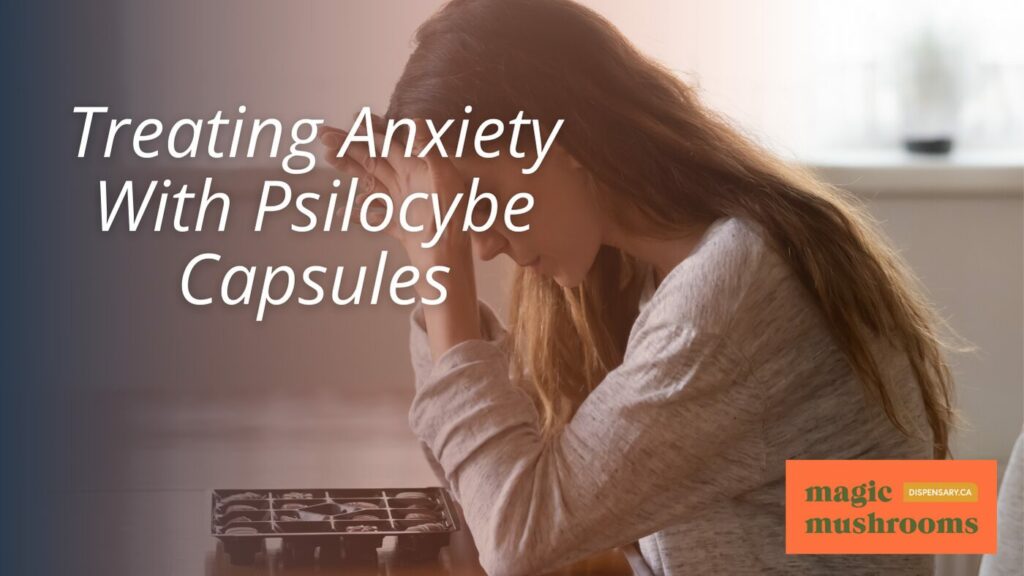
The potential of Psilocybe mushroom capsules for alleviating anxiety is an emerging topic of interest in the field of mental health treatments. Clinical studies highlight the capacity of psilocybin, the active compound in these mushrooms, to induce calmness and decrease anxiety levels. This suggests a promising alternative in treating anxiety disorders, particularly for those who have found traditional treatments ineffective.
The Best Mushroom Capsules For Anxiety
Harnessing the potential of Psilocybe mushroom capsules may pave the way for effective anxiety treatment, as these capsules contain psilocybin, a compound shown to alleviate anxiety symptoms. Clinical trials have demonstrated promising outcomes using psilocybin to treat anxiety disorders, including generalized anxiety disorder and social anxiety.
The convenience and precision dosing of Psilocybe mushroom capsules makes them an attractive option for managing anxiety. They provide a controlled administration of psilocybin, allowing individuals to experience its therapeutic benefits safely. Using these capsules under professional guidance can guarantee a safe and effective treatment process.
Furthermore, research suggests that psilocybin promotes neuroplasticity, assisting individuals to reframe their thoughts and reduce anxiety levels. This property of psilocybin, coupled with its potential to provide long-lasting relief from anxiety symptoms, makes Psilocybe mushroom capsules a compelling treatment option. Effects can last several months following a single dose, suggesting a sustained impact on mental health.
PTSD and Psilocybe Mushroom Capsules
While PTSD can be a debilitating condition, research suggests that psilocybe mushroom capsules may offer a promising avenue for alleviating its symptoms. Psilocybe mushrooms contain psilocybin, an active ingredient that is reported to have a positive impact on mood and promote neuroplasticity. This natural psychedelic compound is currently being examined for its potential therapeutic applications, particularly in treating mental health conditions like PTSD.
Recent research indicates that individuals who have PTSD who used psilocybe mushroom capsules reported reduced anxiety and intrusive thoughts. These findings point to the potential of psilocybin to facilitate emotional processing and reduce fear responses, pivotal aspects of treating PTSD. This suggests that psilocybin could be an essential tool for managing PTSD symptoms and improving the quality of life for individuals living with this condition.
Furthermore, studies show that psilocybe mushroom capsules can enhance therapy outcomes for PTSD, promoting neural plasticity and facilitating new perspectives on traumatic experiences. This is particularly significant for treatment-resistant PTSD cases, where traditional mental health interventions might have failed to provide relief.
Psilocybe mushroom capsules used in controlled settings under the supervision of professionals have demonstrated the potential to improve PTSD symptoms, leading to long-lasting therapeutic effects. The use of psilocybin-assisted therapy is being increasingly recognized as a viable and practical approach to mental health treatment.
Psilocybe Capsules and Obsessive Disorders
In the domain of alternative treatments for obsessive disorders, psilocybe mushroom capsules are emerging as a potentially valuable option. These capsules contain psilocybin, a natural psychedelic compound that has demonstrated potential in mental health therapeutic applications. The focus of this discussion is to explore the role of psilocybe capsules in the management of obsessive disorders.
Obsessive disorders, such as Obsessive-Compulsive Disorder (OCD), are marked by repetitive, intrusive thoughts and behaviors that can disrupt daily life and cause significant distress. Traditional pharmaceutical interventions, such as SSRIs and cognitive-behavioral therapy, have been effective for some, but not all, individuals dealing with these disorders. This has led researchers to explore alternative treatment options, including psilocybin.
Psilocybe capsules have been studied for their potential to reduce these obsessive thoughts and behaviors. Controlled doses of psilocybin, administered in a clinical setting and under professional guidance, have shown promise in alleviating symptoms of compulsive disorders. Clinical trials are underway to confirm these findings and further explore the efficacy of psilocybin therapy for obsessive disorders.
Preliminary findings suggest that psilocybe capsules could offer therapeutic benefits for individuals with obsessive disorders. The potential for psilocybin to positively impact mood and promote neuroplasticity may contribute to its efficacy in alleviating the symptoms of compulsive disorders. In the quest for effective, alternative treatments for obsessive disorders, psilocybe mushroom capsules present a promising and potentially transformative option. Further research is required to fully understand the mechanisms of action, the most favorable dosing, and potential risks associated with this novel therapy.
Neuroplasticity Enhancement by Psilocybin
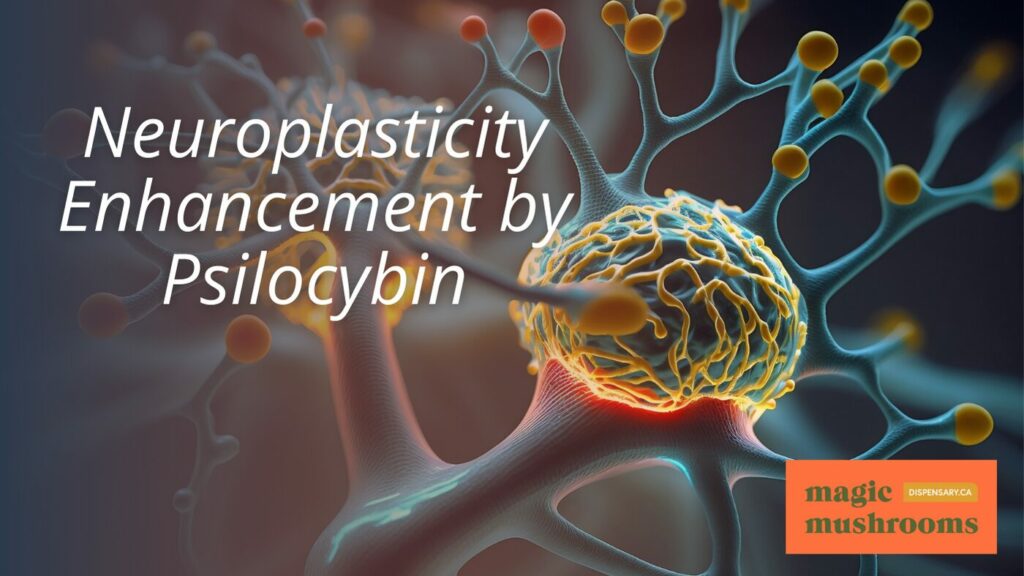
Expanding on the potential therapeutic properties of psilocybin, it’s important to discuss its ability to enhance neuroplasticity, a fundamental process linked to mental health recovery and resilience. Neuroplasticity is the brain’s capacity to restructure and form new neural connections. It is the cornerstone of our capacity to learn, adapt, and recover from brain injuries. It is also vital in mental health treatment, enabling individuals to develop healthier thought patterns and coping mechanisms.
Psilocybin, the active ingredient in Psilocybe mushroom capsules, has been shown to promote neuroplasticity. Remarkably, studies suggest that psilocybin can increase neuroplasticity in regions of the brain linked to mood regulation and emotional processing. This increase in neuroplasticity, spurred by psilocybin, may contribute to its observed antidepressant and anti-anxiety effects. By fostering the formation of new pathways for emotional resilience, individuals may experience a decrease in symptoms of depression and anxiety.
Furthermore, enhancing neuroplasticity through psilocybin could potentially aid individuals in breaking free from negative thought patterns. By promoting the formation of new neural connections, psilocybin may help people modify harmful cognitive behaviors, improve mental well-being, and encourage healthier thought patterns.
The neuroplasticity-enhancing properties of psilocybin offer a promising potential for novel therapeutic approaches in treating conditions like depression and PTSD. As we continue to explore and understand the benefits of Psilocybe mushroom capsules, the enhancement of neuroplasticity by psilocybin remains an essential area of focus, paving the way for further advancements in mental health treatment.
Therapy Sessions With Psilocybe Capsules
Exploring the domain of therapy sessions with Psilocybe capsules reveals that these sessions involve the controlled administration of psilocybin to treat various mental health disorders. Psilocybe capsules offer a standardized and convenient method of administering psilocybin. These capsules are fashioned for therapeutic use, promoting a more structured and regulated approach to mental health treatment and ensuring safety and predictability during therapy sessions.
The therapeutic benefits of psilocybin, the active ingredient in Psilocybe mushrooms, have been recognized in scientific research. It has been associated with mood enhancement, neuroplasticity promotion, and potential relief from symptoms of mental health disorders, including depression, PTSD, addiction, and OCD. The use of Psilocybe capsules in therapy sessions aims to harness these advantages effectively.
The controlled dosage provided by these capsules is a critical factor in their therapeutic utility. Providing a consistent dose of psilocybin not only heightens the predictability of the therapy but also mitigates the risk of adverse effects. This controlled dosing allows mental health professionals to facilitate guided, safe, and effective psilocybin-assisted therapy sessions.
The Process: Microdosing Psilocybe Capsules
Delving into the process of microdosing Psilocybe capsules provides a glimpse into a unique approach to mental health treatment that involves the regular intake of small, sub-perceptual doses of psilocybin. This method is designed to allow individuals to experience the potential benefits of psilocybin without the intense psychedelic effects often associated with larger doses.
Psilocybe capsules offer a convenient, discreet, and tasteless medium for microdosing. This method of intake guarantees both consistent dosing and a controlled intake of psilocybin, thereby reducing the risks of accidental overconsumption and aiding in the regularity of the microdosing regimen. Each capsule contains a carefully measured amount of psilocybin, allowing for precision in dosage that is difficult to achieve with whole mushrooms.
Microdosing with Psilocybe capsules can improve mood, creativity, focus, and overall well-being. These small, sub-perceptual doses of psilocybin usually do not cause hallucinations or the ‘trip’ commonly associated with larger doses of psychedelics. Instead, users often report subtle yet positive changes in their perception and mental state.
Regular intake of these capsules, as part of a structured microdosing regimen, may lead to long-term improvements in mental health. It’s crucial to mention that microdosing should be approached with care and ideally under the guidance of a healthcare professional knowledgeable in psychedelic therapy. While research continues to explore the potential benefits and risks of psilocybin, microdosing Psilocybe capsules offers a promising and innovative approach to mental health treatment.
Side Effects of Psilocybe Mushroom Capsules
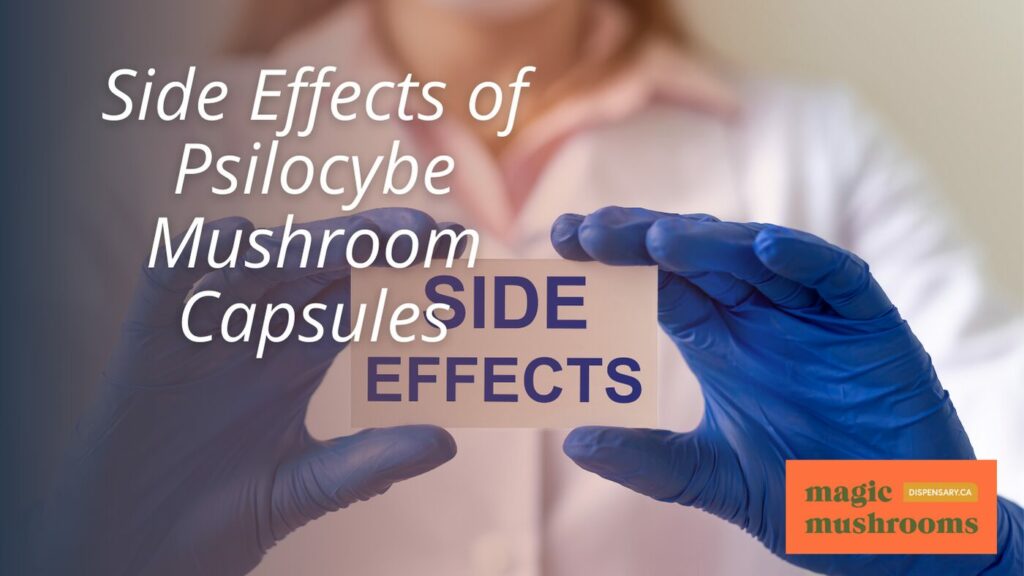
While Psilocybe mushroom capsules offer potential mental health benefits, it is essential to acknowledge the possible side effects, which can range from physical discomfort to altered perceptions and psychological experiences. Physical side effects can include nausea, vomiting, diarrhea, and general stomach upset. Some individuals may also experience increased heart rate, excessive sweating, dilated pupils, and muscle weakness. These physical reactions are typically transient but can be distressing for some individuals, particularly if unexpected.
Aside from physical discomfort, Psilocybe mushroom capsules can also induce changes in perception. Users may experience mood swings, feelings of anxiety, and even instances of paranoia. In some cases, these altered states can lead to hallucinations, confusion, and a distorted sense of time. Heightened sensory experiences are also a common side effect, resulting in more vibrant colors, amplified sounds, and enhanced tactile sensations.
Moreover, Psilocybe mushroom capsules can trigger intense emotions and spiritual experiences. They can alter thought patterns, leading to profound introspection, existential questioning, and a heightened sense of connection to the world around us. While these experiences can be therapeutic, they can also be overwhelming and unsettling for some individuals, especially without guidance or support.
Legal Status of Psilocybe Mushrooms
Despite their potential therapeutic benefits, Psilocybe mushrooms are currently classified as a Schedule I drug in the United States, indicating a high potential for abuse and no accepted medical use. This classification puts Psilocybe mushrooms in the same category as substances like heroin, LSD, and methamphetamines, and consequently, it carries severe penalties for possession, cultivation, and distribution under federal law.
However, there is a growing movement for reform regarding the legal status of psilocybin, the active compound in Psilocybe mushrooms. Some states, such as Colorado and Oregon, have already taken steps towards decriminalization or legalization of psilocybin for therapeutic use. These states have recognized the potential of psilocybin-assisted therapy in treating a range of mental health conditions, including depression, PTSD, addiction, and OCD.
Despite these changes at the state level, it’s important to note that Psilocybe mushrooms remain illegal under federal law. Individuals found in possession of these substances can still face penalties, even in states where psilocybin has been decriminalized or legalized for therapeutic use.
On a global scale, the legal status of Psilocybe mushrooms varies widely. Some countries allow for limited medical or research use of psilocybin, demonstrating an increasing openness towards exploring the therapeutic applications of this natural psychedelic.
Stigma Surrounding Psychedelic Substances
The path towards broader acceptance of psilocybin-assisted therapy is not without obstacles, one of the most significant being the stigma surrounding psychedelic substances. This stigma primarily originates from historical misconceptions and legal restrictions that have long associated these substances with recreational drug use and irresponsible behavior. Such negative perceptions often cast a shadow over the potential therapeutic benefits of psilocybin, obscuring its value as a tool for mental health treatment.
The stigma surrounding psychedelics does not only affect societal perceptions but also has practical implications. It can hinder access to potentially beneficial treatments and limit the scope of scientific exploration into these substances. For instance, the classification of psilocybin as a Schedule I drug in many jurisdictions implies a high potential for abuse and no recognized medical use. This characterization contradicts emerging research on its therapeutic potential.
Efforts to challenge and overcome the existing stigma are essential to harness the full potential of psilocybin and similar substances. Such efforts include rigorous scientific research to substantiate the benefits and mitigate the risks associated with psychedelic-assisted therapy. Additionally, advocacy and education initiatives are necessary to disseminate accurate information about psilocybin and its therapeutic applications, dispelling misconceptions and shifting perceptions.
Reducing the stigma surrounding psychedelic substances will require a concerted effort from researchers, healthcare professionals, policy-makers, and the public. As we continue to explore the benefits of psilocybe mushroom capsules for mental health, it is necessary to address and dispel this stigma, paving the way for more accessible and effective mental health treatments.
Personal Experiences With Psilocybe Capsules
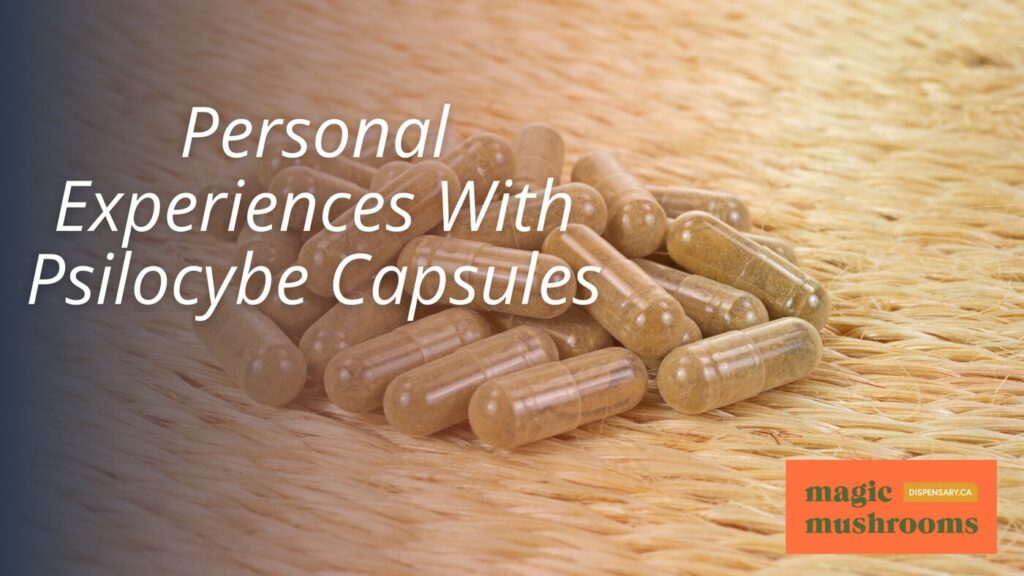
Diving into personal experiences with Psilocybe capsules reveals a broad spectrum of reported benefits, from reduced anxiety and improved mood to enhanced creativity and heightened spiritual awareness. Many individuals who have used these capsules recount experiencing peace and clarity, often pivotal in today’s fast-paced, stress-filled world. These anecdotal reports align with scientific findings suggesting the potential of psilocybin, the active ingredient in Psilocybe mushrooms, to effectively alleviate symptoms of various mental health conditions.
Users often describe a heightened sense of empathy and a profound connectedness to the world around them. This increased awareness of the interconnectedness of all things is frequently reported as a profoundly transformative experience, leading to significant personal growth and emotional healing. Some individuals find that Psilocybe capsules help them break through mental barriers, leading to profound insights that would have been otherwise inaccessible.
Furthermore, the reported enhanced creativity associated with Psilocybe capsule use spans various domains, from visual arts to problem-solving strategies, suggesting a broad scope for potential applications. This newfound creativity can facilitate introspection, aiding in self-discovery and personal development.
However, it’s important to note that experiences with Psilocybe capsules are deeply personal and can vary widely between individuals. While many report positive experiences, others may not find them beneficial. As with any therapeutic approach, it’s essential to consider individual needs, health conditions, and potential risks. More research is needed to fully understand the possible benefits and applications of Psilocybe capsules in mental health treatment.
Safety Precautions for Psilocybe Use
While the personal experiences and potential benefits of Psilocybe capsules are compelling, it’s equally important to consider the safety precautions associated with their use. As with any substance, proper dosage is vital. Starting with a low dose allows individuals to assess their tolerance and effects, promoting a safer experience. It’s also recommended to have a trusted individual nearby when consuming Psilocybe capsules, as they can assist in case of an unexpected reaction.
The environment in which Psilocybe capsules are consumed should be safe and comfortable. This helps reduce anxiety and potential adverse psychological effects. Furthermore, users should proactively understand potential interactions with other medications and pre-existing health conditions. Although research indicates low toxicity and few physical side effects, individual experiences can vary, making it essential to consult with a healthcare professional.
The quality and purity of Psilocybe capsules can also significantly impact safety. Hence, it’s crucial to purchase from reputable sources. Unfortunately, the unregulated nature of this market can lead to products of varying quality, so thorough research is recommended.
Opportunity for Future Research
As we look ahead, the emergence of Psilocybe mushroom capsules presents many opportunities for future research in mental health treatment. The unique properties of psilocybin, the active ingredient in these capsules, have already shown potential in addressing depression, PTSD, addiction, and OCD. Yet, there is much still to discover.
Researchers could optimize dosages for specific mental health conditions to maximize benefits. This would involve a careful study of the correlation between psilocybin dosage and the alleviation of symptoms, yielding guidelines for safe and effective use.
Moreover, the long-term effects of psilocybe mushroom capsules on mental health outcomes remain largely unexplored. Investigations into this area could uncover potential long-lasting impacts on mood and neuroplasticity, thereby shaping the direction of future mental health treatments.
Another promising avenue for research is the potential synergistic effects of combining psilocybe mushroom capsules with traditional therapies. Could such a combination result in enhanced treatment efficacy? This question requires careful scientific exploration and could redefine therapeutic approaches to mental health disorders.
Additionally, understanding the mechanisms of action of psilocybe mushroom capsules could provide valuable insights into how they impact mental health. Such findings could further validate the use of these capsules in therapy and pave the way for more targeted interventions.
Psilocybe Capsules Vs. Traditional Medication
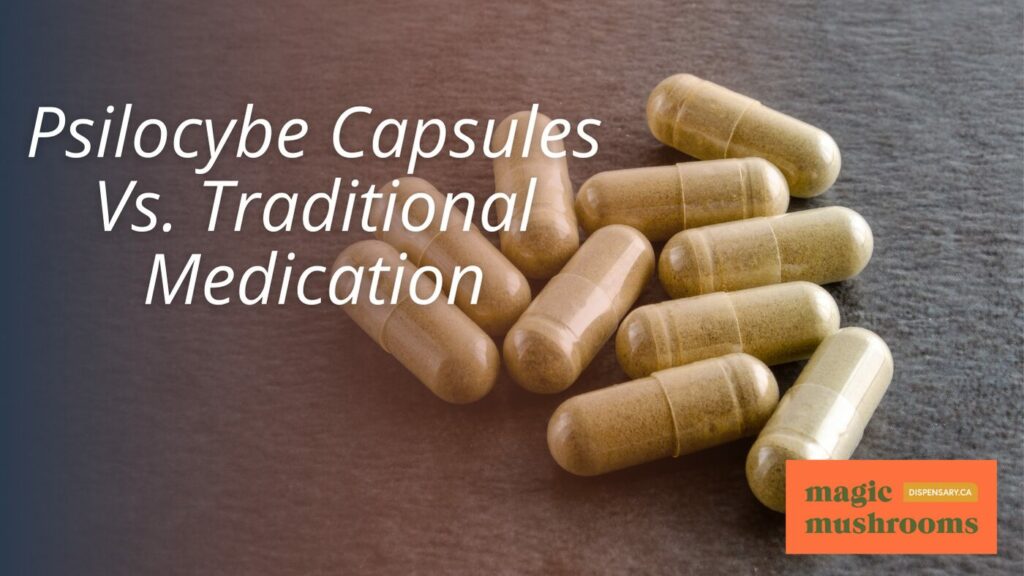
In contrast to traditional psychiatric medications, Psilocybe mushroom capsules offer a natural, potentially less harmful alternative for treating mental health conditions. They contain psilocybin, a compound that, according to research, has potential antidepressant and anxiolytic effects. These effects can be particularly beneficial for those suffering from conditions such as depression, addiction, PTSD, and OCD, where conventional treatments might not be as effective or may come with a range of side effects.
Traditional medications can often lead to dependency and withdrawal symptoms. In contrast, Psilocybe mushroom capsules pose a lower risk of dependency, making them a safer choice for long-term use. Their side effects profile is also reported to be less severe than conventional medications, making them more tolerable for many individuals.
Furthermore, the therapeutic applications of Psilocybe mushroom capsules extend beyond symptom relief. Research suggests that they can enhance emotional processing and promote neuroplasticity in the brain, which is critical in treating mental health conditions. Neuroplasticity, or the brain’s ability to reorganize itself by forming new neural connections, is a crucial mechanism through which mental health conditions can be managed or even resolved.
Accessibility of Psilocybe Mushroom Capsules
Shifting the focus to the practical aspect of Psilocybe mushroom capsules, their accessibility is essential for those exploring this form of therapy. The capsules offer a convenient and discreet method of consuming psilocybin, which could be a significant benefit for individuals seeking natural therapeutic solutions for mental health conditions. However, the availability of these capsules can vary greatly, depending on local regulations and individual preferences.
Although research shows potential therapeutic benefits of psilocybin, it remains a controlled substance in many regions, limiting the accessibility of Psilocybe mushroom capsules. In places where it is legal, these capsules can often be found in specialized dispensaries or through online retailers. It’s important to note that the legality and acceptance of psychedelics can significantly influence their availability.
One of the significant advantages of Psilocybe mushroom capsules is their precision in dosing. This allows for a consistent and controlled psilocybin intake, a particularly beneficial feature for therapeutic use. However, not all suppliers guarantee this phenomenon, hence the importance of sourcing from reputable and regulated providers.
The Potential of Psilocybe Capsules
Exploring the potential of Psilocybe capsules offers an intriguing investigation into their therapeutic possibilities for mental health treatment. Containing psilocybin, a naturally occurring psychedelic compound, Psilocybe mushroom capsules have been linked to several potential mental health benefits. Besides providing a convenient and precise dosing method, these capsules are believed to mitigate symptoms of depression, anxiety, and Post-Traumatic Stress Disorder (PTSD).
The growing body of research into psilocybin’s therapeutic effects underscores the compound’s potential for reshaping mental health treatment. Controlled use of psilocybe capsules under medical supervision can lead to lasting positive mental health outcomes, indicating the potential of these capsules as an alternative to traditional pharmacological treatments. As discussed, psilocybe capsules aren’t just an accessible form of therapy but potentially transformative.
Various clinical trials are currently studying the potential of Psilocybe capsules. These trials aim to understand their efficacy in treating diverse mental health conditions. The preliminary results of these trials are promising, suggesting that the potential of Psilocybe capsules extends beyond the alleviation of symptoms to potentially facilitating a better comprehension of one’s mental health.
Frequently Asked Questions
What Are the Recommended Dosages for Psilocybe Mushroom Capsules?
Recommended dosages for Psilocybe mushroom capsules vary significantly according to individual factors and therapeutic goals. Typical microdosing ranges from 0.1g to 0.3g, taken every three days. Higher doses, for therapeutic sessions under professional guidance, can reach up to 3.5g. However, starting with lower doses is important; monitoring individual responses and adjusting accordingly is essential. Always consult with a healthcare provider before starting any new treatment regimen.
Can Psilocybe Mushroom Capsules Interact Negatively With Other Medications?
Yes, psilocybe mushroom capsules can interact negatively with other medications. Like any substance, it has the potential for drug interactions. Notably, it can have adverse reactions with antidepressants, antipsychotics, and certain heart medications. Hence, it’s essential to consult with a healthcare professional before starting any psilocybin-assisted therapy. They can provide advice on potential interactions and guarantee safety during treatment.
Are There Any Long-Term Effects of Using Psilocybe Mushroom Capsules?
The long-term effects of using Psilocybe mushroom capsules are still under research. Some studies suggest the potential for psychological dependence and tolerance development. However, unlike many pharmaceuticals, life-threatening physical addiction has not been associated with psilocybin. There are also reports of lasting positive effects, such as elevated mood and increased openness. It is important to emphasize that more extensive research is needed to fully understand the long-term impacts, both positive and negative, of psilocybin use.
What Is the Best Way to Store Psilocybe Mushroom Capsules?
The optimal storage of Psilocybe mushroom capsules is essential for their potency and safety. They should be kept in a cool, dry place, away from direct sunlight and high temperatures. A dark glass container is ideal for storage. The container should be airtight to prevent moisture and air exposure, which can degrade the psilocybin. Given their psychedelic properties, it’s also essential to store these capsules out of reach of children and pets.
Can I Use Psilocybe Mushroom Capsules While Pregnant or Breastfeeding?
The safety of using Psilocybe mushroom capsules during pregnancy or breastfeeding is not well-studied. Given the potent psychoactive properties of psilocybin, the active ingredient, it’s recommended to avoid this substance during these periods. Potential risks to the fetus or infant are unknown. Always consult with a healthcare professional before introducing any new substances or treatments during pregnancy or while breastfeeding. An individual’s health and their child’s health should always take precedence.
Conclusion
To summarize, Psilocybe mushroom capsules, containing the powerful active ingredient psilocybin, demonstrate tremendous potential in mental health treatment. As an innovative therapeutic tool, they provide a fresh approach to alleviating symptoms associated with various mental health disorders. Future research holds the potential to reveal their therapeutic benefits further and compare their effectiveness with traditional medication. The availability of these capsules could reshape the landscape of mental health treatment, marking a new era in psychiatry.
Buying Microdosing Mushrooms Online in Canada
Are you an avid microdoser or looking to venture into the art of microdosing? Working with a reliable, trustworthy shrooms dispensary is paramount in becoming a better version of yourself. Magic Mushroom Dispensary prides itself on its comprehensive collection of top-notch microdosing products, psilocybin books, excellent customer service, and fast, discreet shipping. Visit our online shop today and enjoy low prices and free shipping for orders above $99.
